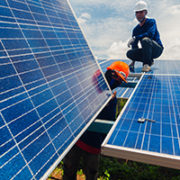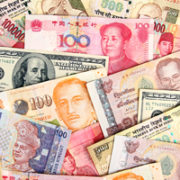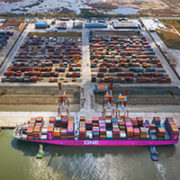Archive | Economics RSS feed for this section
Economics, Finance sector development
 Economics, Energy
Economics, Energy
 Economics, Transport, Urban development
Economics, Transport, Urban development
 Economics
Economics
 Economics, Energy
Economics, Energy
 Economics, Governance and public sector management, Industry and trade
Economics, Governance and public sector management, Industry and trade
 Economics, Energy
Economics, Energy
 Economics, Finance sector development
Economics, Finance sector development
 Economics, Governance and public sector management
Economics, Governance and public sector management
 Economics, Industry and trade, Regional cooperation and integration
Economics, Industry and trade, Regional cooperation and integration

Characterizing financial cycles: Are emerging markets different?

A feature of the academic literature on financial cycles relates to the fact that it almost exclusively focuses on selected advanced economies, the findings of which may not necessarily hold for emerging economies. Global capital flow developments and monetary policies in advanced economies mean that financial cycle dynamics may differ substantially in emerging economies, not only in terms of turning points but also with regard to which asset market cycle best characterizes the financial cycle.
Economic integration and energy efficiency for energy security in ASEAN

The security of energy supply is crucial for rapid growth in Southeast Asia, but it is being increasingly challenged by the region’s fast-growing energy demand. This high demand can be explained by improvements in energy access as well as population and economic growth.
Measuring the economic and social impacts of high-speed rail

The scale of investments in high-speed rail (HSR) raises questions about the most appropriate methods of appraisal. Increasingly the reliance on conventional cost–benefit analysis, based essentially on the direct benefits to users and the direct costs to operators, has been questioned.
Macroeconomic stabilization in the digital age: What should policy makers be aware of?

The rise of the digital age has created challenges for policy makers around the globe in managing their economies. Early work on this issue by Cecchetti (2002) noted that macroeconomic management becomes more complex in an environment of digitalization given shifting trend productivity and difficulties in estimating potential output.
Political risks in energy-transporting countries and energy security in the Caspian Basin

Energy security is a crucial issue in contemporary international relations but not a new one. It is usually defined as the reliable and sufficient supply or demand of energy at acceptable prices and is at the top of the agenda for both energy-importing and energy-exporting countries.
Land readjustment in Japan: Beyond the myth of Japanese consensus and harmony

The landscape of Misato City in Japan has changed drastically in the last 35 years. In the 1980s, Shin-Misato Station was the Mushashino marshalling yard for freight services. Most of the land near the station was used for agriculture, but once residential houses increased and more people came to settle in the area the government built a passenger train station.
Feed-in tariffs and loans for boosting private investment in renewable energy

Investment in renewable energy of $9 trillion is required to meet global energy supply needs by 2040 (International Energy Agency 2016), but investments in fossil fuels still dominate those in renewable energy. Many countries are implementing national energy policies, including fiscal, financial, information and education, institutional support, strategic planning, regulatory, and voluntary measures, to promote greater private investment in renewable energy.
What explains the growing global demand for cash?

In recent years, cashless payment methods have become increasingly prevalent around the world due to the use of various innovative tools and convenient financial services through mobile phones. This trend is contributing to greater efficiency in our economies and financial systems. Nevertheless, a puzzling phenomenon is that the demand for cash has been rising in many countries. This means that growth in the demand for cash reflects factors other than the transaction motive used for payment. These factors might include opportunity cost, precautionary motives, and other motives such as aging and demand from abroad.
Bridging the digital tax divide in Asia

Digitalization has transformed the global economy and had significant impacts on Asia and the Pacific, home to some of the world’s biggest and most advanced e-commerce markets, such as the People’s Republic of China (PRC), Australia, Japan, New Zealand, Singapore, and the Republic of Korea (Asian Development Bank and United Nations ESCAP 2018).
The upgraded ASEAN-People’s Republic of China Free Trade Agreement could matter, big time

In 2015, the Association of Southeast Asian Nations (ASEAN) and the People’s Republic of China (PRC) signed an Upgrade Protocol to improve the original Framework Agreement for the ASEAN-People’s Republic of China Free Trade Area (ACFTA) as well as their Agreement on Trade in Goods, Services, and Investment. The Upgrade Protocol entered into force in July 2016, and implementation will start from August 2019.


Search
Subscribe / Connect to Asia Pathways
Subjects
- Agriculture and natural resources
- Blog
- Capacity development
- Climate change
- Economics
- Education
- Energy
- Environment
- Finance sector development
- Gender
- Governance and public sector management
- Health
- Industry and trade
- Information and Communications Technology
- Infrastructure
- Miscellaneous
- Population
- Poverty
- Private sector development
- Regional cooperation and integration
- Sanitation
- Social development and protection
- Transport
- Uncategorized
- Urban development
- Video Blog
- Water
Recent Posts
- Artificial intelligence: A new driver for inclusive growth and development?
- Increasing trust in cross-border e-commerce and artificial intelligence
- Enhancing access to maternal and newborn healthcare in developing Asia
- Can electric vehicles lead the way to a sustainable future?
- Mitigating climate-related sovereign risk to accelerate action on the climate emergency




Recent Comments